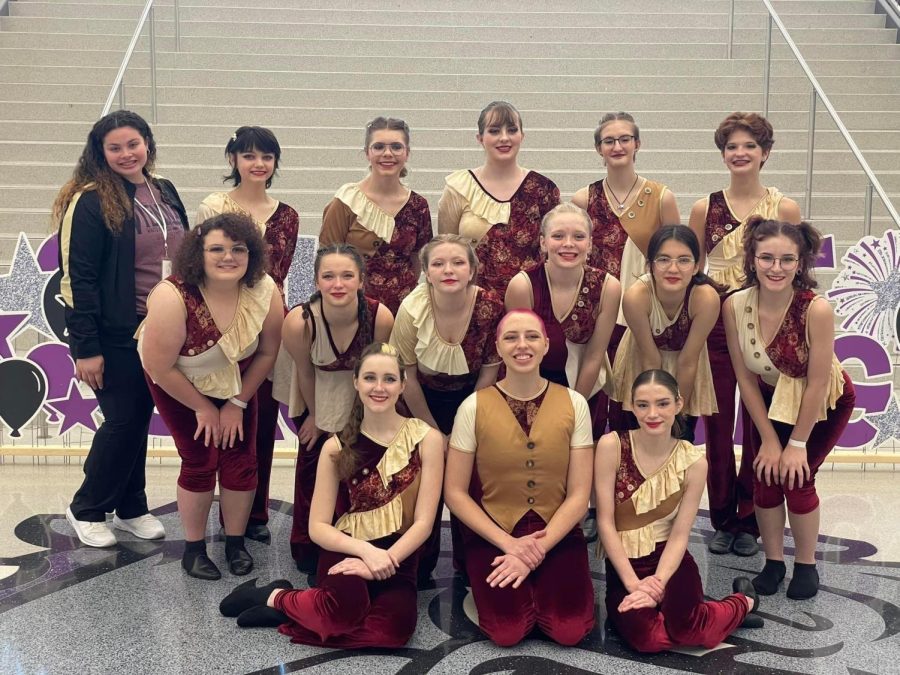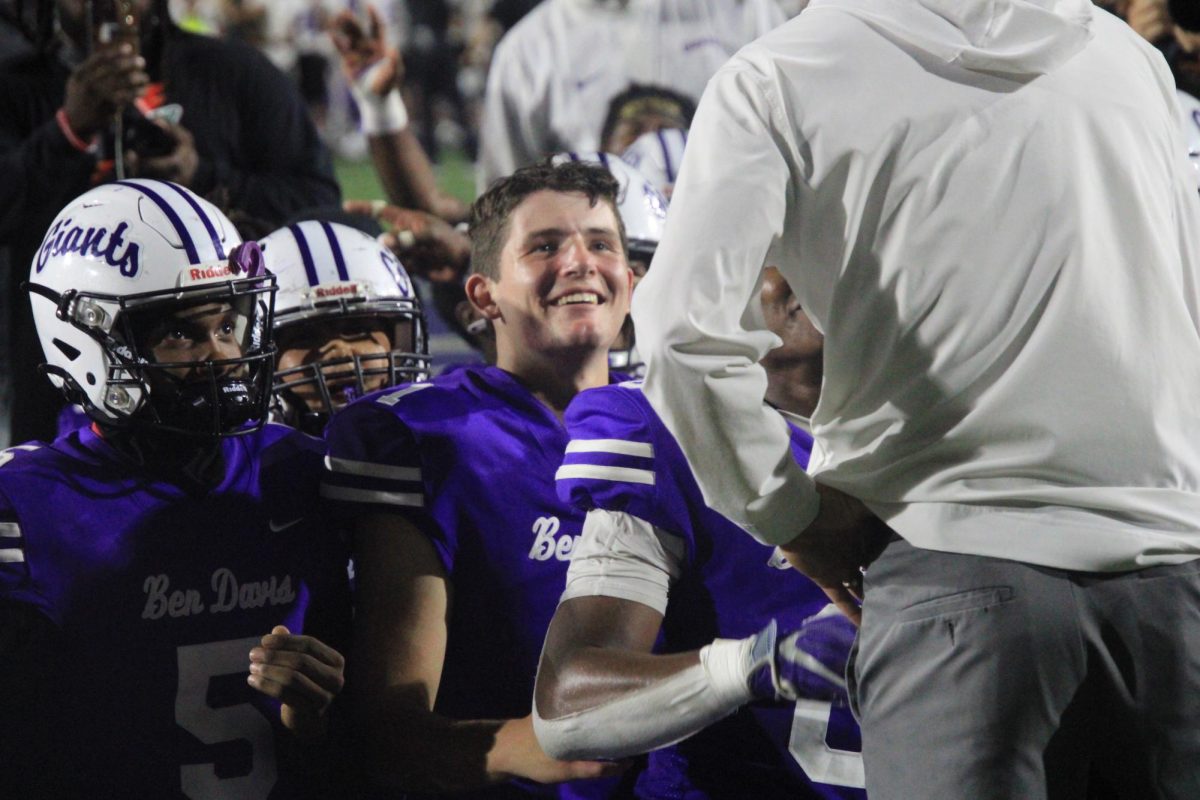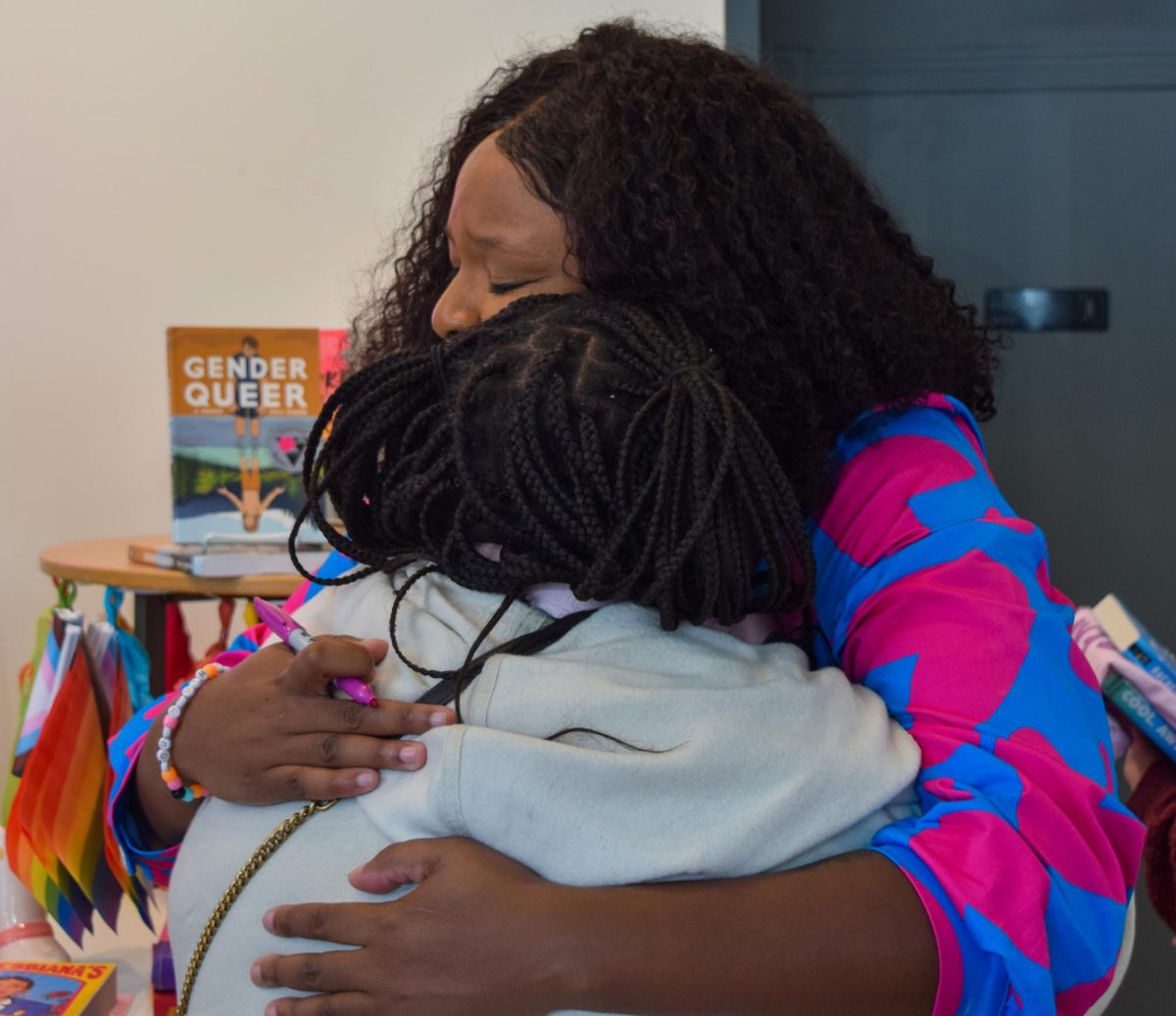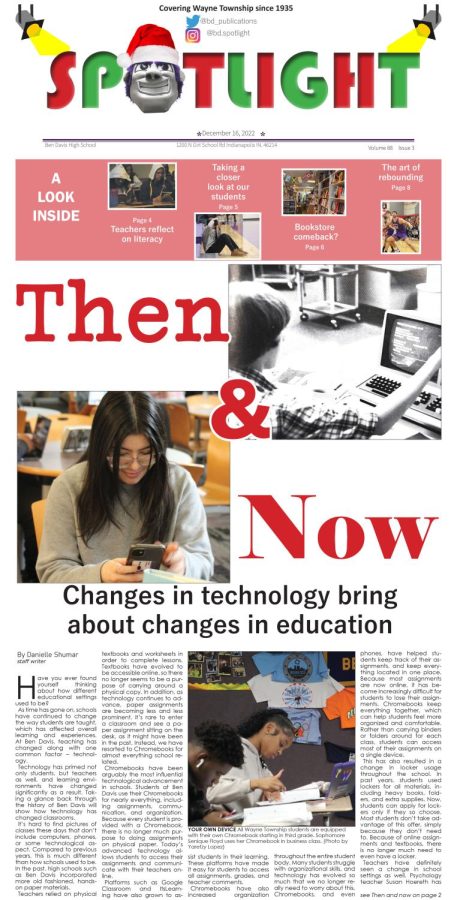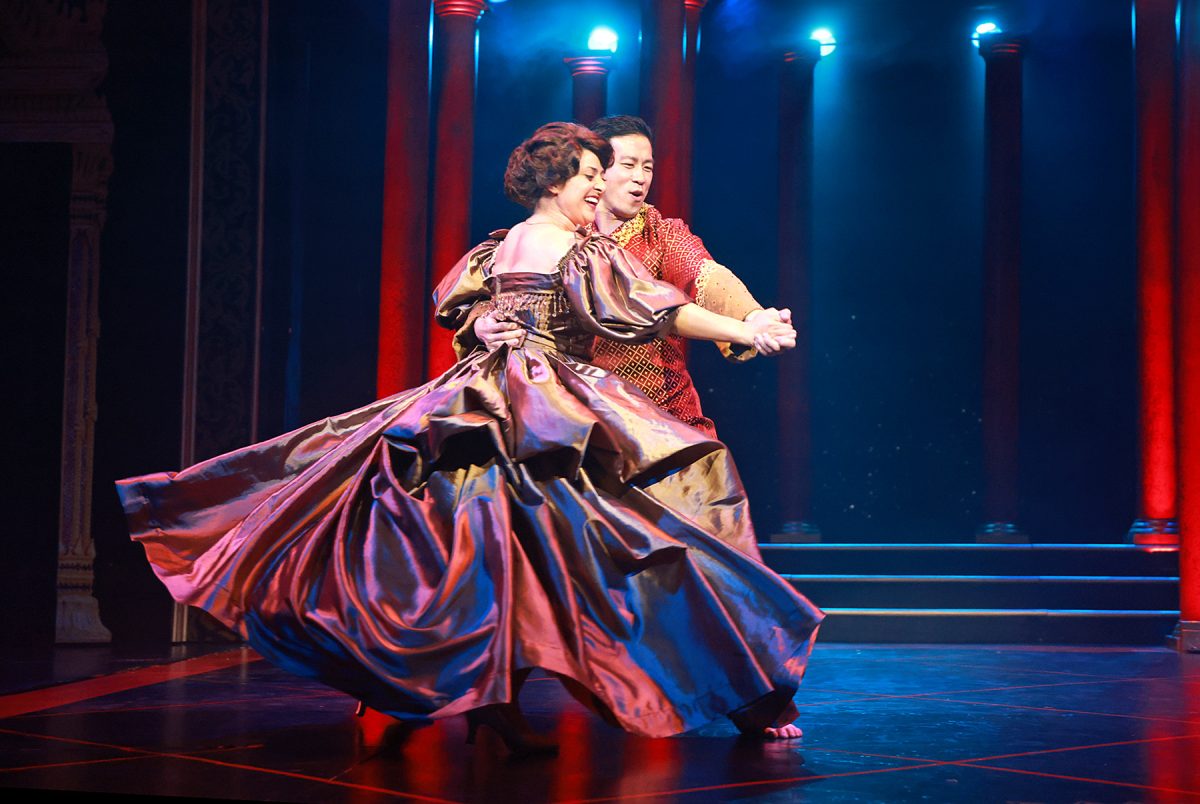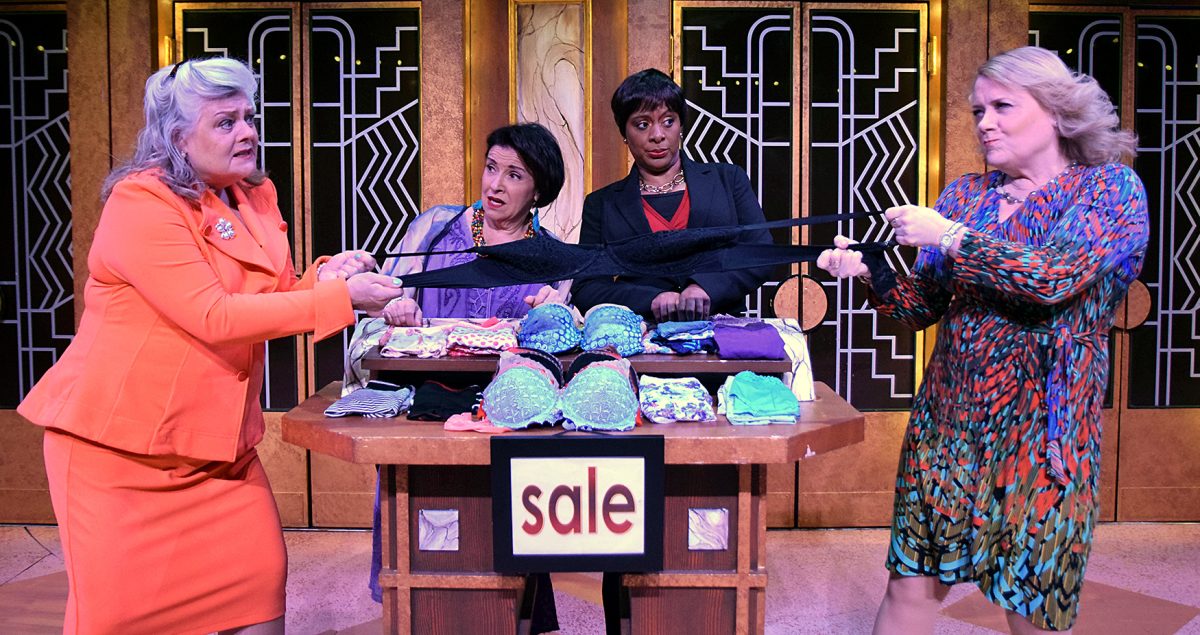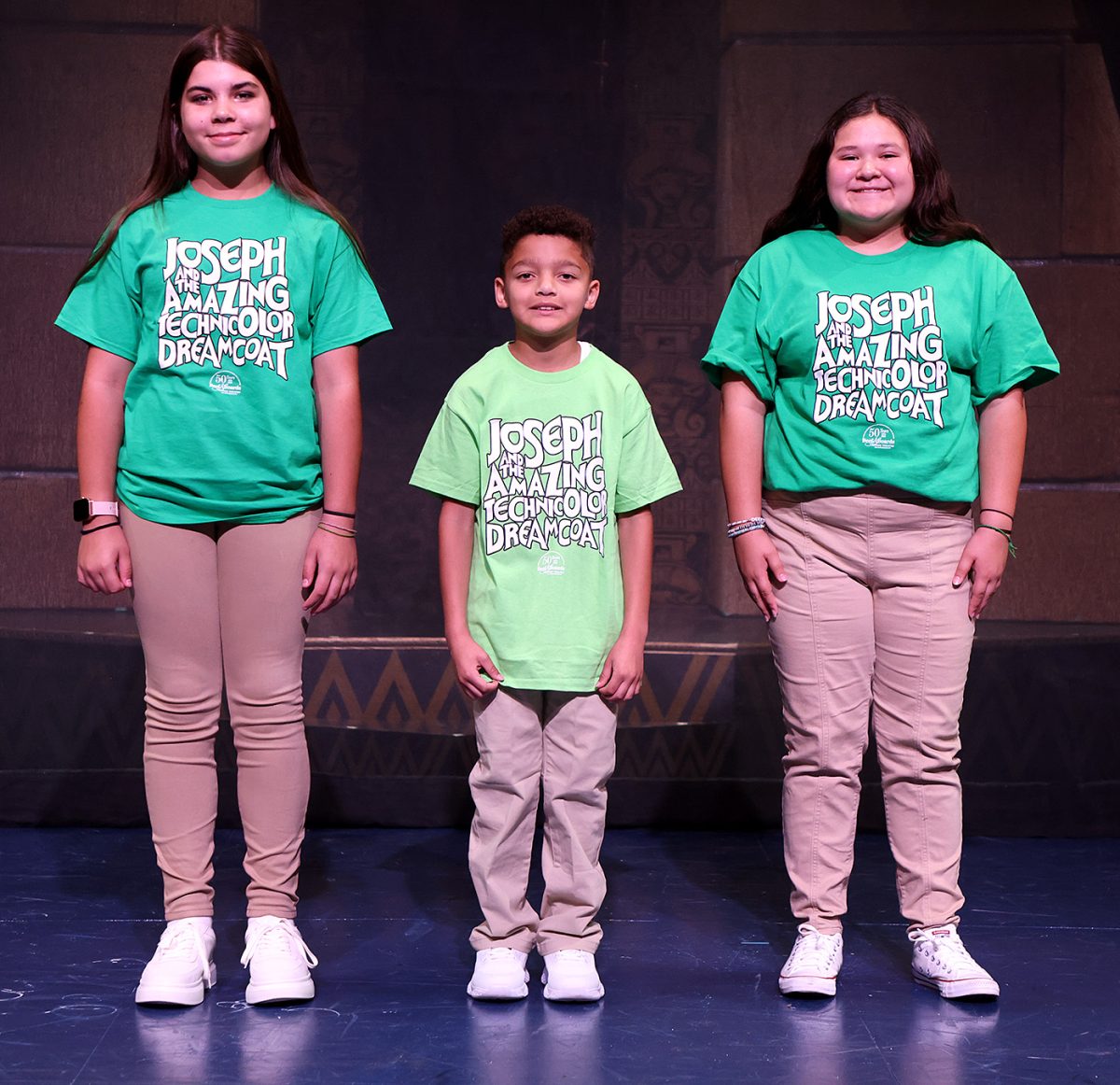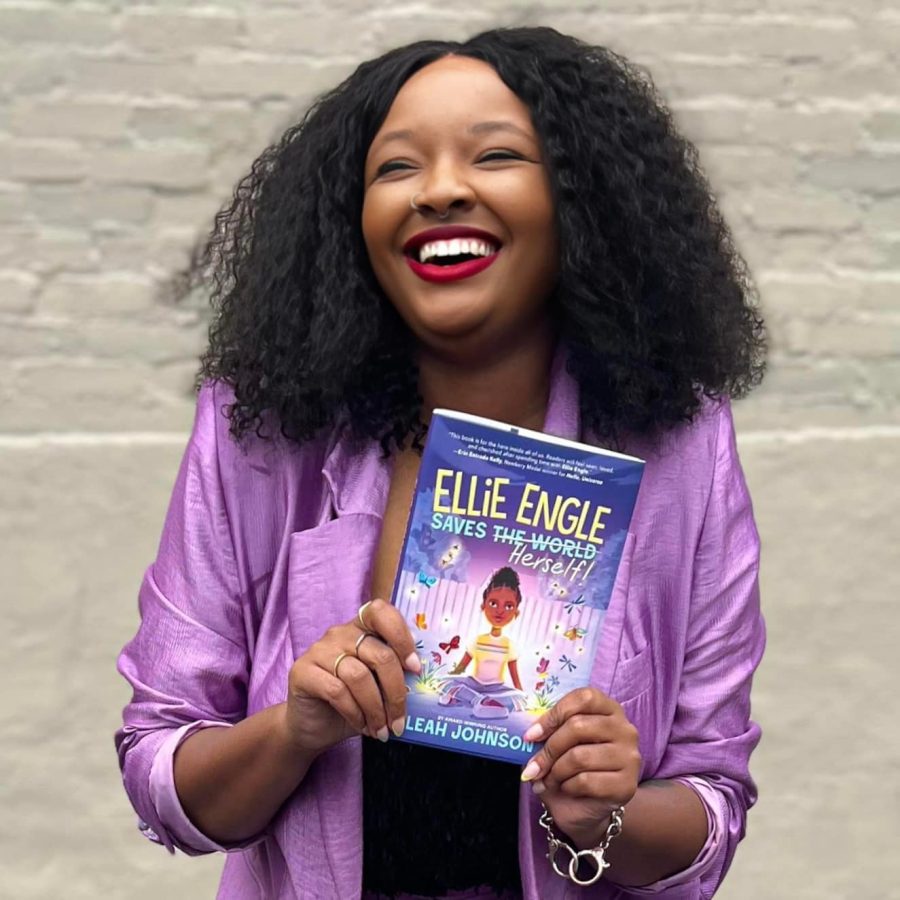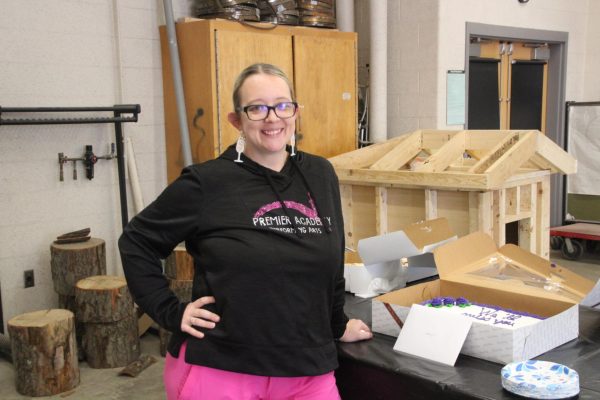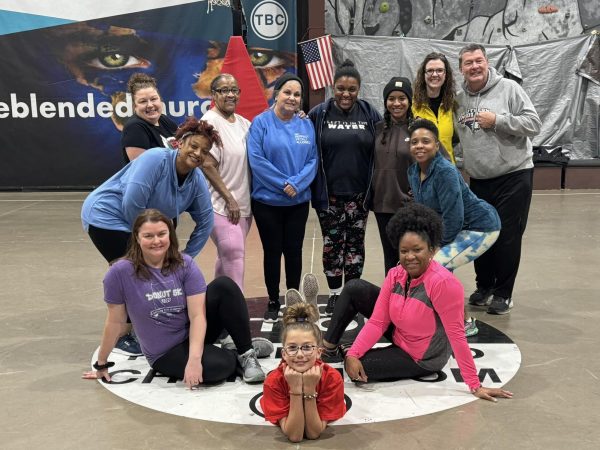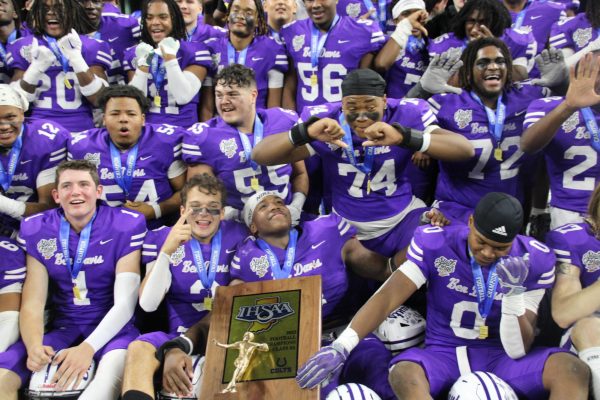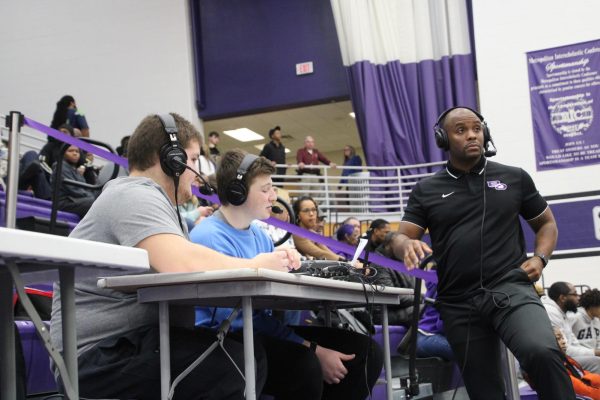Johnson talks writing, book banning
Have you heard of Leah Johnson? She is a 2012 Ben Davis grad who has become a wonderful author since her time here. Her 2020 debut novel, You Should See Me in a Crown earned the Stonewall Book Award Nominee for Children & Young Adults.
Johnson’s first two YA novels focused on the lives of queer black women. You Should See Me in a Crown was a wholesome and inspirational story of a girl who overcame her financial struggles while trying to get through high school while falling in love with the new girl. Secondly, Rise to the Sun was a very representative book for queer teenagers. There is love, joy, and pride all throughout this book.
Her most recent publication, a middle school book titled Ellie Engle Saves Herself, takes on the story of a quiet introverted girl who became a popular sensation overnight. Johnson held a launch event for Ellie Engle Saves Herself at the central library downtown. She spent more than an hour discussing her life and her most recent book.
The launch event was in conversation with Ashley C. Ford, who asked many of the questions that the audience also wanted to ask. The energy of the audience was wonderful because we could all feel the positivity and happiness for Leah. I wouldn’t dare spoil Ellie Engle Saves Herself, however what I will tell you is that Ellie Engle is sensationalized due to her superpowers. Which by the way she has to deal with all while being in middle school and exploring her sexual orientation.
Sexual orientation isn’t talked about enough when dealing with a 12-year-old or an average middle schooler. However, Johnson takes charge by explaining the journey of a queer child who is overwhelmed by the challenges of life.
“Coming out to my mom and feeling that relief was an allegro for queerness and blackness,” Johnson said.
One of the many challenges that Ellie faces throughout the book is being completely invisible to getting all the attention put on her.
“Her superpower used to be invisibility, but some people are just meant to be in the spotlight,” Johnson said.
Johnson drives her inspiration for the parents in her books from the parents she has seen fail her friends and loved ones. For this reason, Ellie’s mom turns out to be extremely supportive and protective.
“Kids deserve to be loved for who they are not in spite of who they are,” Johnson said.
Ellie Engle didn’t need to be a superhero, she just needed to be herself.
“It felt liberating to write that, so much room for play and exploration, the most honest I’ve been in a book,” Johnson said.
It’s important to realize that authors are constantly changing their writing styles as well as their ideas.
¨You deserve to know it’s possible for someone to love you through all your hurt, ¨ Johnson said.
Although there were many heart-warming moments at this event, there was also some not-so- great commentary about the distasteful laws recently passed concerning book banning.
Indiana House Bill 1447 was initially an education bill that banned obscene material or otherwise ¨harmful to minors¨ literature.
Indiana Code defines ¨harmful to minors¨ as anything containing nudity, sexual content, or ¨sado-masochistic abuse¨, a persuasiveness for minors to engage in sexual activities, offensive content to community standards for adults considering what´s suitable to minors to see, and content void of ¨serious literary, artistic, political, or scientific value¨ for kids. The definition of ¨harmful to minors¨ can essentially be anything short of the discussion of sex.
So, what happens if a school or librarian keeps such ¨harm to minors¨ books in their library? A librarian could face up to two years in jail for this.
HB 1447 was authored by representative Donna Schaibley. Nearing the end of April this law was passed in the House 60-28 and passed in the Senate 39-10.
The controversy and opposition of this law was strong. There was an entire group of people who became united because they wanted to put an end to a problem that is nonexistent. This law is not an education law, any person in their right mind who values education would never support a law that bans books that show the reality of life.
What is the big idea here? Don’t ever let kids or teenagers read books where there is a discussion of sex because it will corrupt their minds, give them the wrong idea, influence them?
Social media can provide the same information being banned through these books. Supporters and advocates of this so-called ¨education¨ law just want to be in control of something, anything really. All the efforts being made to ban these ¨harmful to minors¨ books are for nothing.
¨I know a young woman, a young woman who’s queer. And she’s a very successful author. Her name is Leah Johnson. And after her first book … came out, it was a young adult’s book, it was called “You Should See Me In A Crown.” … It won the Stonewall Award. It did very, very well. … It was about young people, young women who were lesbian. Those were the two main characters. It’s a love story. It was funny, it was light-hearted. But that book showed up on a banned book list out of the state of Oklahoma. ¨ Representative Renee Pack said.
Johnson’s stories are an embodiment of all the struggles that black queer women go through. The representation that comes with these types of novels is important to keep in classrooms and libraries. Leah Johnson has had a widespread impact on MSD of Wayne Township students. Although Johnson is an author, she is also an educator. “For the first time in my life I am writing books with no fears,” Johnson said
Your donation will support the student journalists of Ben Davis High School. Your contribution will allow us to purchase equipment and cover our annual website hosting costs.


